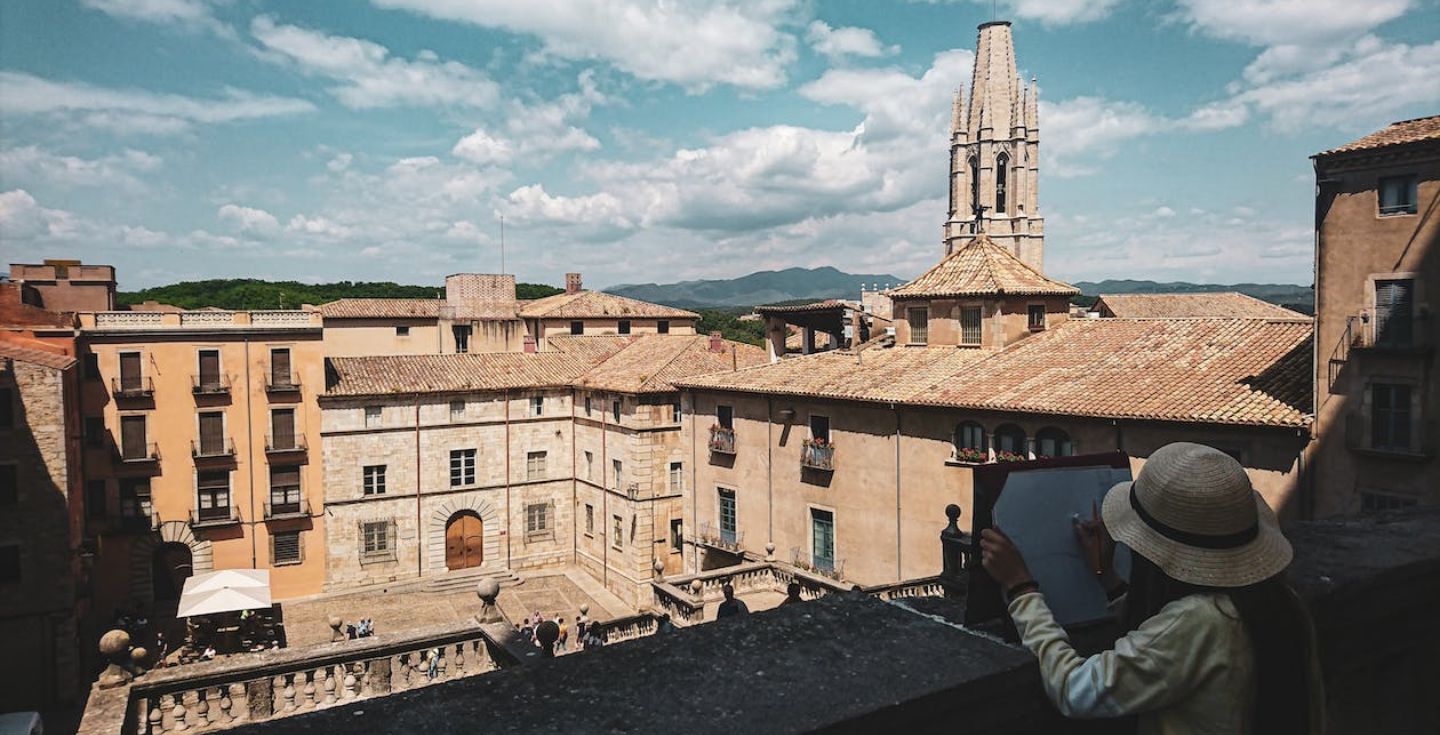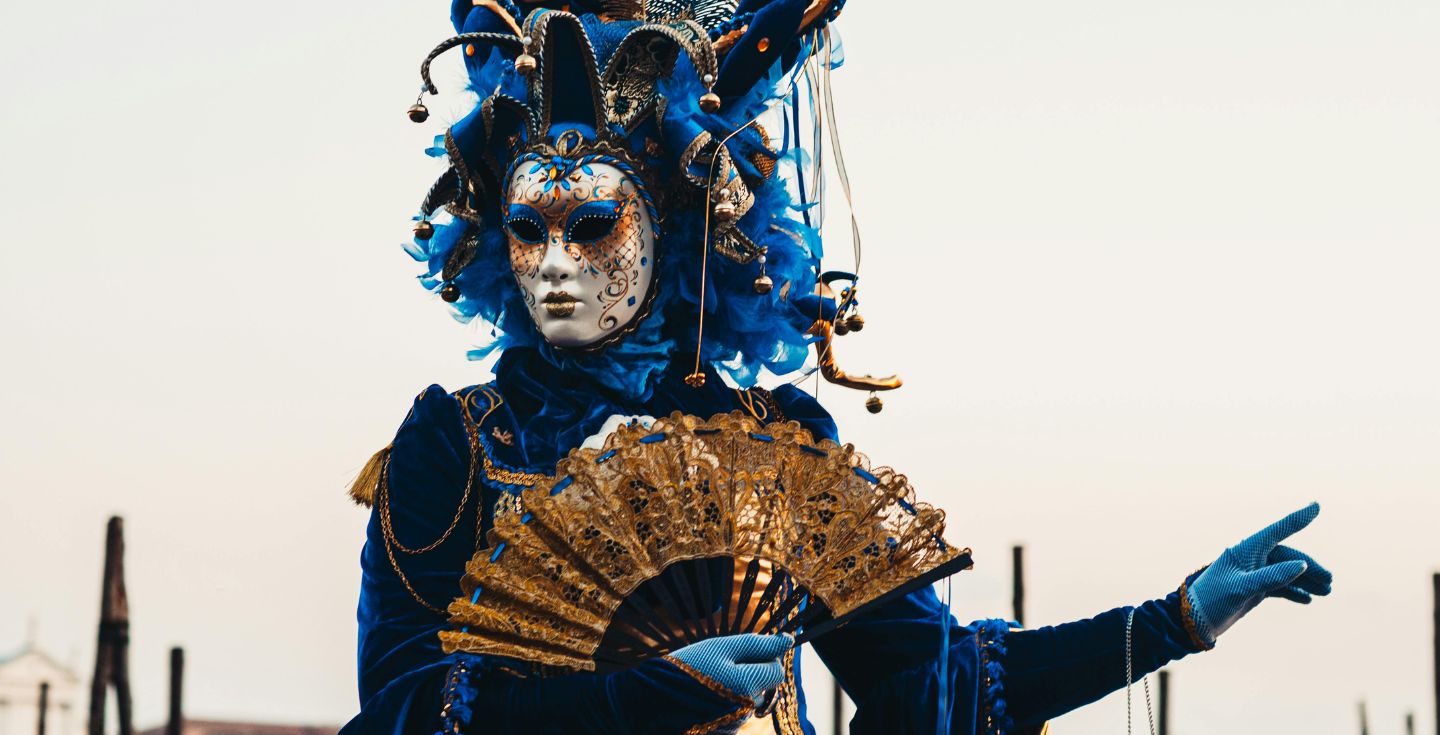Best time to visit Ireland: Your month-by-month breakdown
Planning an Irish getaway? Learn the ideal time to visit Explore our detailed breakdown of Ireland's seasons, highlighting key events, weather, and travel tips.
Many consider summer the best time to visit Ireland. Warmer temperatures and longer days make it ideal for exploring the Cliffs of Moher or the Dingle Peninsula. But what about the vibrant wildflowers of fall or cozy pubs of Christmas?
Below, we outline the best time of year to visit Ireland, covering the seasons, monthly weather conditions, and unmissable events, to help you determine what time of year best suits your needs. Plus, find out how you can have unlimited data during your Irish vacation at any time of year.
When is the best time to visit Ireland by season?
June to August is the most popular – and perhaps the best of year to visit Ireland. However, late April to early May is an ideal time to visit Ireland if you want a mix of good weather and fewer crowds.
The Emerald Isle has something for everyone all year round. In addition to the idyllic conditions from April – August, September and October offer a golden opportunity to experience the country’s landscapes as they transform to the colors of fall – also while avoiding the summer rush. Here’s a breakdown of Ireland, season-by-season:
Spring (March-May):
- Weather: Temperatures start to climb (5°C to 13°C/41°F to 55°F), more sunshine, but still expect some rain.
- What’s to expect: Wildflowers pop, lambs are everywhere, and the gardens are stunning. Perfect for hiking, exploring small towns, and seeing Ireland’s natural beauty wake up.
Summer (June-August):
- Weather: Warmer temperatures (15°C to 20°C/59°F to 68°F), longest days, but crowds too.
- What’s to expect: Festivals galore, packed beaches, and hiking is prime. Great for road trips and outdoor adventures.
Autumn/Fall (September-November):
- Weather: Temperatures start to drop (10°C to 15°C/50°F to 59°F), more rain, but beautiful foliage.
- What’s to expect: Food festivals and cozy pubs. Ideal for scenic drives and exploring historical sites
Winter (December-February):
- Weather: Coldest temperatures (3°C to 8°C/37°F to 46°F), short days, and lots of rain.
- What’s to expect: Christmas markets and cozy pubs with live music. Perfect for city breaks, cultural immersion, and festive cheer.
As we can see, Ireland’s climate is a unique blend of mildness and unpredictability, a testament to its location on the edge of the Atlantic. The phrase “four seasons in one day” isn’t just a cliché; it’s a genuine possibility. Regardless of when you choose to visit, certain factors should be considered.
Below, we’ve offered a detailed 12-month weather breakdown and activity suggestions to help you plan the best time of year for you to go to Ireland:
| Month | Avg. Temp (°F) | Notes |
|---|---|---|
| January | 39-45 | Colder temperatures, rain, and shorter days which can make travel uncomfortable. But Dublin’s TradFest offers a great celebration of traditional Irish music. You can expect cozy pubs, warm drinks, and live music performances. |
| February | 39-45 | A quieter month with chilly temperatures. Consider attending the Dublin International Film Festival, which often begins in late February and offers a fantastic cultural experience during this quieter time. |
| March | 41-48 | Warming temperatures and the significant St. Patrick’s Day festivities. Expect parades and a lively atmosphere, particularly in Dublin. |
| April | 43-52 | Increasing daylight and pleasant temperatures, perfect for the outdoors. Visit Glendalough, a monastic site in the Wicklow Mountains. You can enjoy scenic walks, explore the ancient monastic ruins, and take in the views with fewer crowds. |
| May | 48-57 | Mild temperatures that are perfect for visiting the Japanese Gardens at the Irish National Stud in County Kildare. |
| June | 54-63 | June marks the start of the festival season with long daylight hours and pleasant weather. Take a road trip along the Wild Atlantic Way, especially in County Kerry. |
| July | 57-66 | The warmest month and peak tourist season. Expect crowds and numerous events, particularly at beaches. Enjoy a day at Inch Beach in County Kerry, a long sandy beach popular for swimming and surfing. |
| August | 57-66 | The warm weather and busy tourist season continue. Suitable for beach vacations and outdoor adventures. Explore the Aran Islands by bicycle, enjoying the unique landscape and ancient sites. |
| September | 54-61 | Milder temperatures and fewer crowds. Ideal for scenic drives and enjoying the change in season. Drive through the Sally Gap in the Wicklow Mountains for great panoramic views. |
| October | 48-55 | Fall colors and crisp air, perfect for photography and walks in the countryside. Walk through the Killarney National Park to take full advantage of fall’s charm. |
| November | 43-48 | The low season with cooler temperatures, offering budget-friendly travel options. Suitable for exploring without tourist crowds. Explore the Rock of Cashel and have a more intimate experience of this historic site. |
| December | 39-45 | Festive markets such as the Galway Christmas Market and holiday celebrations, amidst colder temperatures and often significant rain. |
The cheapest time to visit Ireland
If you’re seeking the most affordable travel option, November’s the best time to go to Ireland, as rock-bottom prices, slashed flight deals, and cozy stays are all on offer.
But, pack layers: the chill bites in the evenings even though the rains haven’t quite started yet. If you want to experience nature without the many tourists, the shoulder season (late spring/early fall) delivers mild days and less busy nature and hiking trails. If you’re a history buff, Ireland’s perfect year-round, but steer clear of St. Patrick’s Day if you’re watching your wallet, as prices skyrocket.
Lastly, skip the Dublin airport rush and land in Shannon or Cork for cheaper flights. If you want to be more strategic about spending, swap city hotels for B&Bs in spots like Doolin or Westport and head to local pubs for wallet-friendly meals instead of tourist traps.

Key dates in Ireland for 2025
- St. Patrick’s Day (March 17th): Immerse yourself in the celebrations of Ireland’s national day. Expect epic parades, with Dublin’s being the most popular, though smaller towns also host lively celebrations. You’ll find incredible live music spilling out of every pub and a sea of green. Pro-tip: book accommodation ahead of time, and plan your pub crawls— things get packed.
- Music Festivals (Summer): Ireland’s festival scene is legendary. From indie gigs to traditional irish music sessions, there’s a beat for everyone. To stay current with trends, check out a popular festival like All Together Now, or keep it local and find a small town event with fewer crowds. Download festival apps for schedules and last-minute tickets.
- Local Festivals: Want to see the real Ireland? Skip the larger cities and hit up a small town’s local fest. Think: street food, impromptu music jams, and locals who’ll welcome you like family. For example, check out the Lisdoonvarna Matchmaking Festival in County Clare during late september, a super fun and unique local festival. Find these events by checking local tourism websites or asking B&B owners for the inside scoop.

Peace of mind during your Ireland vacation with Holafly
Say goodbye to hunting for unreliable WiFi, struggling with EU roaming fees, and fumbling with physical SIM cards, such as a local Ireland SIM card. With the best eSIM for Ireland you can find, you’re instantly connected the moment you arrive, ready to immerse yourself in the Emerald Isle’s charm.
Effortlessly navigate Dublin’s historic streets, share stunning photos of the Cliffs of Moher, or video-call loved ones from a cozy Galway pub, all thanks to your reliable 5G data connection. Use real-time maps to find your way around ancient sites, book last-minute tours, or simply stay connected on the go. Plus, with 500 MB of daily hotspot data, you can easily share your connection with fellow travelers.
Choose from flexible, unlimited data plans to suit your trip:
- 5-day plan: $20.90
- 7-day plan: $29.90
- 10-day plan: $36.90
- 15-day plan: $50.90
- 20-day plan: $61.90
Working or studying in Ireland and need a monthly data plan? Stay effortlessly online with Holafly Connect, the eSIM that keeps you connected without SIM swaps or complicated setups. Pick from unlimited data, 25 GB, or 10 GB plans, activate in minutes, and use your phone as a hotspot for all your devices. Whether you’re hopping between countries or settling in for a while, enjoy reliable, contract-free internet wherever you go!





 Language
Language 


















 No results found
No results found













